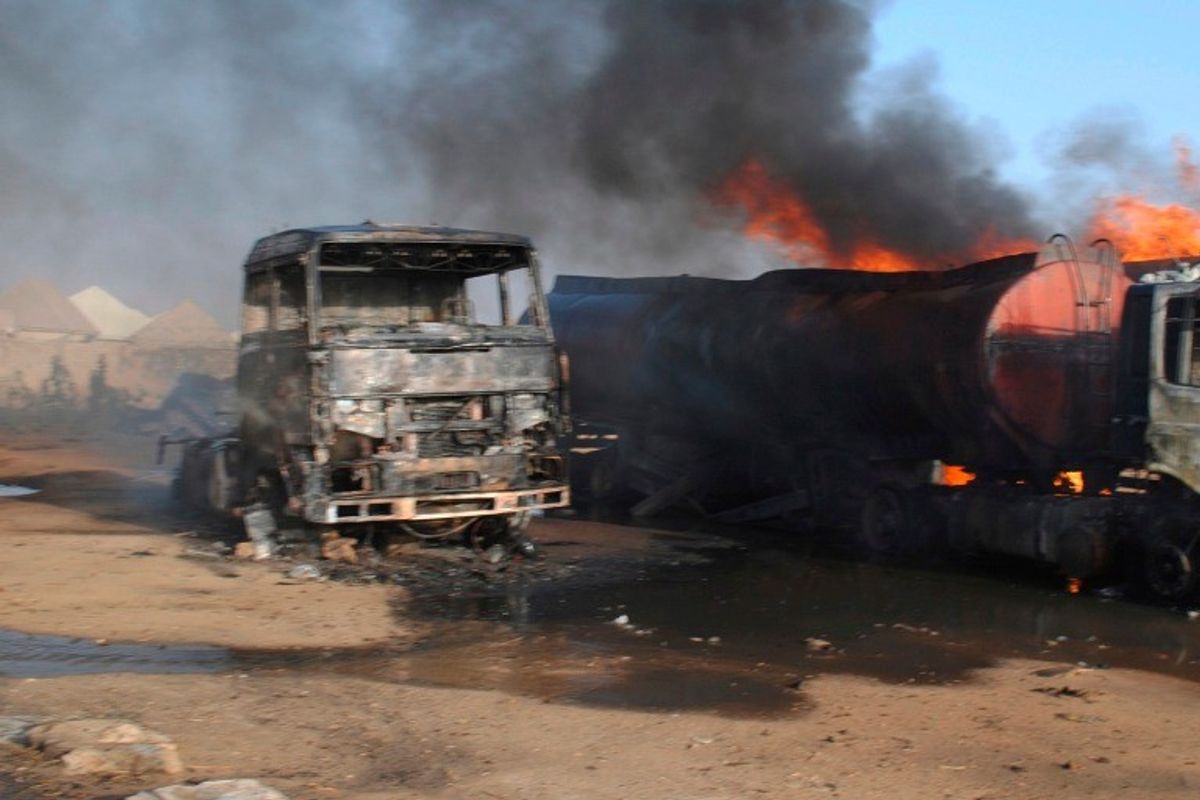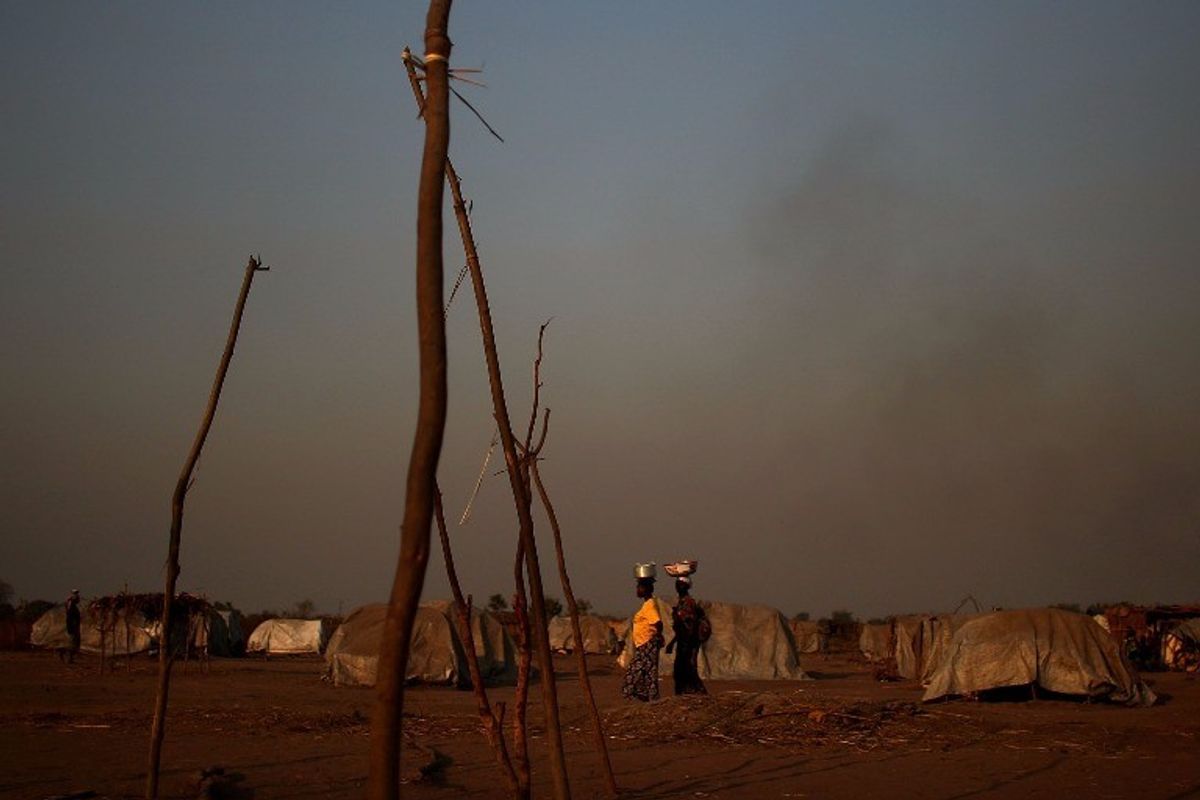The Cipher Brief spoke with Dr. Alexandra Gillies, the director of governance programs at the Natural Resource Governance Institute (NRGI), to get her thoughts on recent changes in the Nigerian oil sector. NRGI promotes good governance in the oil, gas and mining sector.
The Cipher Brief: What are the five things western oil companies need to be thinking about in the next 3-6 months?
Alexandra Gillies: The international oil companies (IOCs) will be watching closely to see whether the new government decides to revisit any of the terms in the existing joint venture and production sharing contracts. The previous Petroleum Industry Bill, which stalled for years in the legislature due to low political support, sought to revisit these deals. IOCs could expect change on multiple fronts. Across all the areas mentioned below, the IOCs could either help facilitate the kind of reform that the sector so urgently needs or could assume a more obstructionist stance.
First and foremost, Nigeria will likely seek to lessen its financial obligations associated with its joint ventures with IOCs. Over half of the country’s production is governed by these deals. For years, the government has failed to pay its full share of joint venture “cash calls,” causing its debts to IOC partners to rise dramatically. Especially during this time of fiscal crisis, the government will explore options for how to restructure the deals so as to lessen their share of up-front financial outlays. If done well, this change could benefit the IOCs who are tired of operating under un-funded budgets. But the potential for disagreements is also high.
Second, the former Petroleum Industry Bill sought to increase the share of revenues captured by the government under the country’s Production Sharing Contracts (PSCs). It remains to be seen whether the new government will take up this cause, which might be more difficult to advance in today’s low price context.
Third, the new leadership of the Nigerian National Petroleum Corporation (NNPC) has indicated that it will review all existing contracts and has suggested that the IOCs owe several billion dollars in unpaid taxes. This could be an early sign of an effort to tighten up the sector’s revenue assessment system, which would ideally include better industry cost control by NNPC’s subsidiary NAPIMS.
Fourth, the IOCs will take an interest in whether the new government will inherit their predecessor’s commitment to favoring domestic companies. The participation of Nigerian companies in the upstream and trading spheres increased rapidly over the past five years, often to the exclusion of foreign players. In the trading space, the announcement of the next round of term export contract holders will be an interesting signal in this regard.
Finally, the IOCs are likely watching the Niger Delta, and how problems like oil theft, vandalism, and militant activity will rise or fall under the new political dispensation.
TCB: How was the oil sector managed under the previous administration, and how is that likely to change?
AG: Under the Goodluck Jonathan Administration, the oil sector became more corrupt and less efficient. Rather than address fundamental problems with the sector’s governance, such as the national oil company’s crippling debts, the Jonathan Administration invented a number of makeshift practices to work around them, and these practices became sites of revenue loss and corruption.
Oil prices topped $100 per barrel during much of the previous government’s tenure, which made these inefficiencies and leakages more affordable. This is no longer the case. For Nigeria to benefit more fully from its oil, President Muhammadu Buhari will have to change how NNPC works. In the short term, some basic steps would stem losses. The government could rein in NNPC’s discretionary spending (which has topped $7 billion in recent years), examine the utility of NNPC’s subsidiaries which tend to operate as financial black-boxes, and stop NNPC from doing business with unqualified and often politically-connected middlemen. Steps like these could be taken in the near term, while the government figures out a plan for restructuring NNPC into a more commercial entity.
Just as difficult will be breaking the previous government’s habit of using the oil sector for patronage. Its current structure is well-suited to delivering benefits to political allies and public office holders, but not so great for maximizing returns to the nation – especially during a period of low prices and weak interest from investors. Progress in this area would signal good things for the economy as well as the integrity of the public sector.
TCB: What impact is Buhari’s anti-corruption campaign having on the oil sector?
AG: Expectations around Buhari’s anti-corruption campaign are very high, but the direction of travel is not yet clear. Rumors are widespread about whether he will pursue oil sector corruption which occurred under the previous government. No publicly-known action has been taken yet. The new head of NNPC has stated a commitment to transparency, but time will tell whether business as usual will prevail. One promising sign was the cancellation of the crude oil- for-product swap deals, which NRGI analysis found to be highly imbalanced, and NNPC Group Managing Director Emmanuel Ibe Kachikwu has indicated that NNPC will use open tenders to award the 2016 versions. That said, he then signed interim swap deals with NNPC’s own trading subsidiaries, which are highly opaque black-box entities registered in offshore jurisdictions. But, overall, it is too soon to tell.
TCB: How would you characterize current security trends in Nigeria? Is Buhari’s government any better equipped to handle Nigeria’s security challenges?
AG: One would expect someone with Buhari’s military background and reputation for clean governance to do a better job at tackling security. The coming months will reveal whether this hope is true. The recently announced probe by the government into military procurement is a good sign, as corruption in the military is one factor inhibiting its effectiveness in fighting Boko Haram.
TCB: How is the security situation impacting the energy sector and the business climate more generally?
AG: The most serious security threats are in the northeast of the country, quite far from the oil-producing regions and the business capital of Lagos. The business climate is certainly in trouble, though, due more to uncertainty around Buhari’s economic agenda, the very serious fiscal and monetary challenges, and low oil prices.











